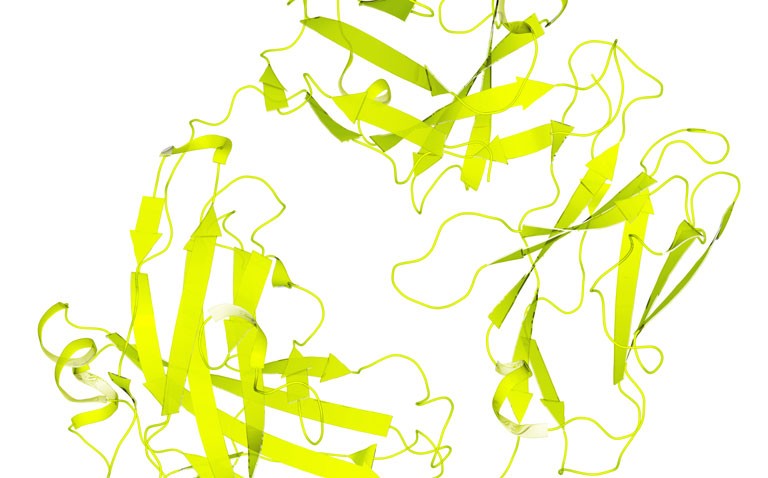Immunosuppressant therapy affects an individual’s immune response but how this impacts on the COVID-19 antibodies is uncertain.
The production of an effective immune response after infection with COVID-19 is of paramount importance in preventing further bouts of infection. Moreover, biologicals such as infliximab, which target tumour necrosis factor (TNF), are known to impair protective immunity following a number of viral infection vaccinations including influenza, viral hepatitis and pneumococcus, thereby increasing the risk of serious infection. Hence in the early part of the COVID-19 pandemic, patients prescribed immunosuppressant therapy were advised to shield. Fortunately, information derived from international registry data indicates that the rates of severe infection among patients prescribed immunosuppressants are similar to the background population rates. However, whether anti-TNF drugs actually impair the immune response in those who have already been infected with COVID-19 is uncertain. This prompted a team from the Department of Gastroenterology, Royal Devon and Exeter Trust, UK, to examine the subsequent immune response in those with inflammatory bowel disease (IBD) after infection with COVID-19 and treated with infliximab. In an effort to test whether the immune response was blunted, the team retrospectively compared antibody responses in those treated with either infliximab or vedolizumab, a gut selective anti-integrin alpha4beta7 monoclonal antibody, for at least 6 weeks. Consecutive patients at the hospital were recruited when attending their infusion appointments and those who had participated in any of the COVID-19 vaccine trials were excluded. The primary outcome was the proportion of patients with a positive COVID-19 test and a secondary outcome was the magnitude of the antibody response between the two treatment groups, in those who tested positive. The team collected several additional pieces of information including demographics as well as information on IBD disease activity and mental health wellbeing and anxiety assessment and used this to construct multivariate logistic regression analysis.
Findings
A total of 6935 patients were included in the analysis of whom, 67.6% were prescribed infliximab with a mean age of 37.1 years (45.5% female). The majority of those prescribed infliximab had Crohn’s disease (66.6%) or ulcerative colitis (31.1%). In contrast, most of those (60.1%) prescribed vedolizumab had ulcerative colitis. There were a similar proportion of patients in both groups who either reported COVID-19 symptoms (8.3% vs 8.9%, infliximab vs vedolizumab) or tested positive (5.2% vs 4.3%) or who were hospitalised (0.2% vs 0.2%) because of their infection. Overall, the prevalence of COVID-19 antibodies was 4.3% but this was significantly lower in those using infliximab (3.4% vs 6%, p < 0.0001). Additionally, among those with PCR confirmed COVID-19 infection, seroconversion was observed in fewer patients treated with infliximab (48% vs 83%).
In a discussion of their findings, the authors noted how infliximab appeared to attenuate the subsequent serological response to the virus despite a similar level of rates of either symptoms or positive tests. They also described how as the action of TNF is to stimulate B cells, the effect of infliximab was biologically plausible.
They concluded that their work had important implications for vaccinating those prescribed infliximab and called for serological surveillance to detect suboptimal vaccine responses.
Citation
Kennedy NA et al. Anti-SARS-CoV-2 antibody responses are attenuated in patients with IBD treated with infliximab. Gut 2021










